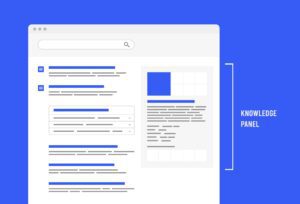
Entities in SEO: A new strategy for success

Chances are, you’ve heard of keywords in SEO- keyword research often takes central focus in most SEO strategies. But have you heard of entities? They’re a factor of SEO commonly unheard of or overlooked, but they should be considered for your strategy.
The term ‘entities’ is not used widely enough in the SEO world, as people tend to turn to what they’re comfortable with – the old, familiar methods of keyword research. With Google starting to take a more entity-focused approach and using less reliance on exactly matching the SERPs with keyword phrases, it’s important to learn how you can implement them into your strategy.
From strategic internal linking to structured data, learn how entities in SEO can form a new strategy for success.
What are entities in SEO?
An entity can be either conceptual or physical and it’s able to distinguish what specific, unique ‘thing’ (e.g., person, place, colour) that the search query is referring to. It helps Google decide what entity is most relevant to the keywords and to the user intent behind the search.
When used in SEO, entities can help inform your strategy as you’ll want to optimise your site to rank for a specific entity, or even multiple. This may change how you write content, what topics to cover or even whether local SEO is implemented to rank for a specific place.
How is an entity different from a keyword?
The difference between a keyword and an entity can be difficult to get your head around, so what actually makes the two different?
Well, simply put, the keywords are what a user types into the search engine. However, an entity is the concept or ‘thing’ that the keywords point to. The entity provides a level of context behind the keyword.
To give an example, a user may search for the keyword ‘bat’, but the entity referred to could either mean the animal bat, or the equipment. Google’s algorithm determines which entity is most useful for the user’s search query, and can provide other entities that are in relation (e.g., the location with ‘UK bats’ or the specific sport with ‘baseball bat’.)
3 ways to use entities for your SEO strategy
So now you know what entities are, but how can they be utilised for your SEO strategy? There are a few tactical ways that you can optimise your site with entities, so here are a few to get you started:
Topic clustering
The use of topic clusters helps your content go beyond just the keyword and is able to cover a topic or whole range of topics. Building these clusters can directly associate you with the entity that you have in mind.
Entities therefore help with strategic internal linking as you can link all the different topic pages together. The search engine then understands how much depth you’ve covered this entity in. Following on from the main ‘pillar page’, you can create a content strategy that creates pages about sub-topics so your site is more likely to rank for the different entities it wants to associate with.
Structured data
The power of structured data can be harnessed to provide Google with more context about your site, therefore matching your page with relevant entities. The in-page markup code can explicitly tell Google which entities (places, people, items etc.) that your site is associated with so it can rank for them.
Backlinks
Entities are useful in determining what backlinks you should have. Backlinks should always be from authoritative, relevant pages- do the sites linking to you relate to the entities you aim to rank for? There’s a lack of value if the links don’t relate topically, and having an entity in mind can help you navigate your backlinking strategy.
Entities and ‘The Knowledge Graph’
‘Things, not strings’ is how Google introduced its knowledge graph in 2012. The knowledge graph essentially includes all those related entities (topics), providing a user with further information about their search query.
The ‘knowledge panel’ on Google can help you see what topics are related to a keyword and what other information is useful. From here, you can gain inspiration for what topics to tackle next in order to target these entities.
How does research work for entities?
Keyword research is extremely integral for knowing how your users search and what for, but that’s just the start. Researching for entities looks at the wider scope of searches and helps see what entities your site is currently linked with.
Research would involve analysing competitor sites and seeing what they also rank for, using NLP AI tools or SEO tools to identify related subjects, or even using Wikipedia and their internal links.
Researching for entities is where semantic SEO could come in handy. The methods involved in semantic SEO practices aim to make content more topic-focused, so full context behind the user’s search query is considered instead of matching the exact keyword phrase.
Ready to use entities in your new strategy for success? Embryo can help
At Embryo, our strategies take a holistic approach that is geared towards maximum success- the expert SEO team know exactly what to look for when optimising your page, and no element of SEO is overlooked. Want to know more? Call us at 0161 327 2635 or email [email protected].
If you’re looking to develop your SEO knowledge, our wide range of blogs can get you started.
